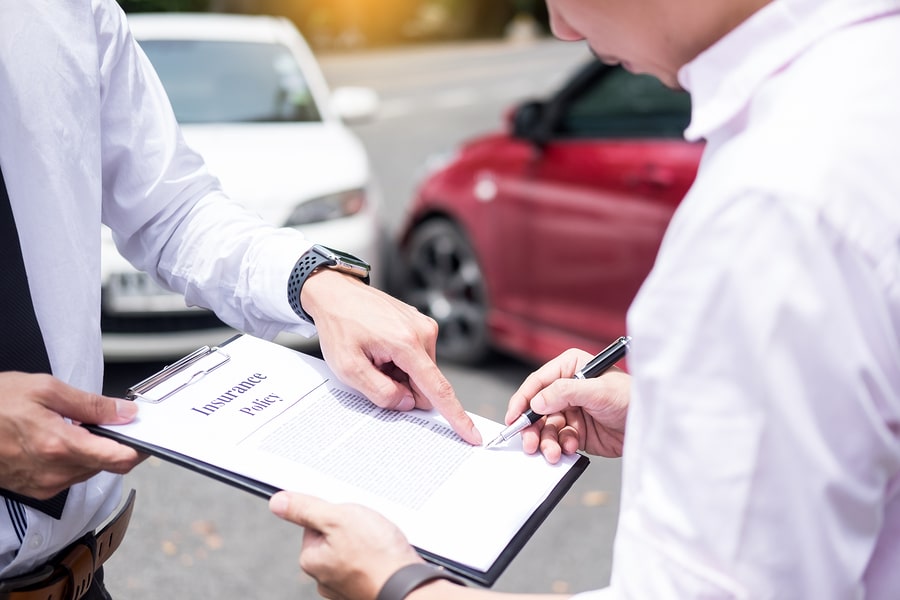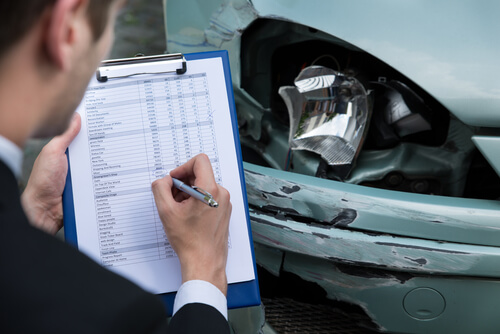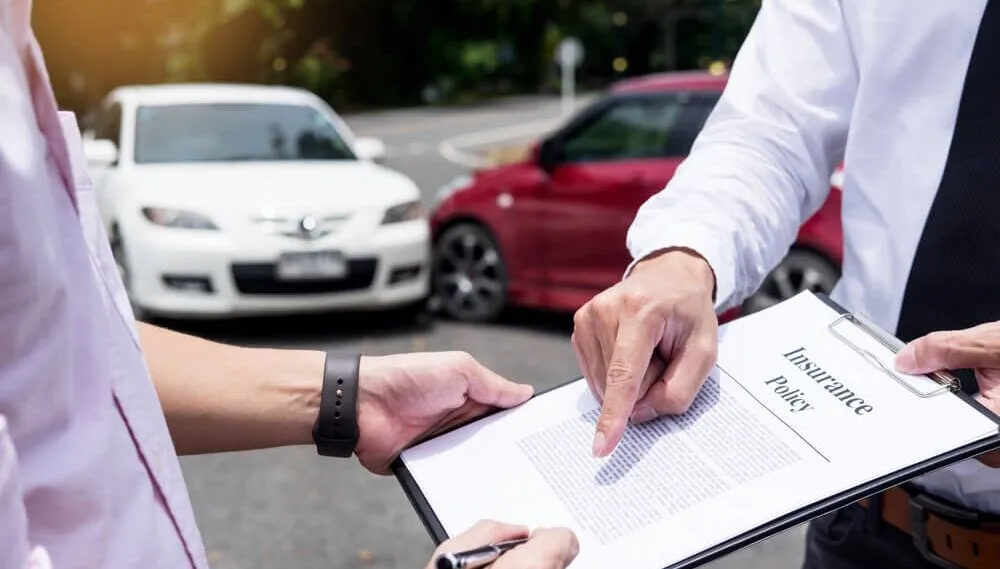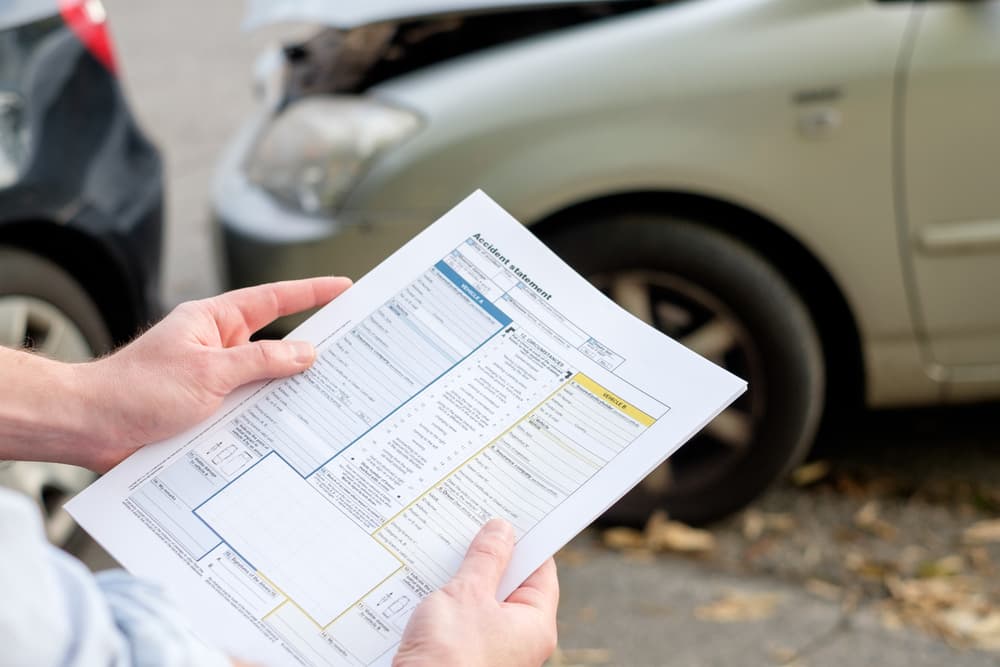Car accidents can be overwhelming and stressful, especially when it comes to filing a claim. Understanding the car accident claim process can significantly impact the outcome of your case, ensuring you receive the compensation you deserve. This comprehensive guide will walk you through everything you need to know, from immediate actions post-accident to the importance of documentation, and how to file a successful claim.
Toc
Seeking Legal Advice: When and How

While not always necessary, legal advice can be invaluable in complex cases. Here’s when and how to seek legal assistance:
- Severe Injuries or Fatalities – If the accident resulted in serious injuries or death, legal advice is crucial.
- Disputed Liability – When fault is not clear or is contested.
- Insurance Denial – If your claim is denied or you’re offered a low settlement.
- Finding the Right Attorney – Look for an experienced personal injury attorney with a strong track record in car accident claims. Free consultations can help you determine if a lawyer is the right fit for your case.
- Contingency Fees – Most personal injury lawyers work on a contingency fee basis, meaning they only get paid if you win your case. This can ease the financial burden of hiring legal help.
Step-by-Step Guide After a Car Accident

The moments following a car accident can be chaotic and overwhelming. However, it is crucial to remain calm and take the necessary steps to ensure your safety and well-being of yourself and others involved.
Ensure Safety and Gather Information
- Check for Injuries – Ensure everyone involved is safe. Call emergency services if anyone is injured.
- Move to Safety – If possible, move vehicles out of traffic to avoid further accidents.
- Call the Police – Even for minor accidents, having an official report can be beneficial.
- Exchange Information – Collect names, contact information, insurance details, and license plate numbers from all parties involved.
- Document the Scene – Take photos and videos of the accident scene, vehicle damage, and any visible injuries. This will be useful when filing a claim.
- Do Not Admit Fault – Avoid discussing fault or apologizing, as this can negatively impact your claim.
Seek Medical Attention
- Get Evaluated – Even if you feel fine, it is essential to get evaluated by a medical professional within 24 hours of the accident.
- Document Injuries and Treatment – Keep track of all medical appointments, treatments, and expenses related to your injuries.
Contact Your Insurance Company
- Report the Accident – Contact your insurance company as soon as possible after the accident to report the incident.
- Provide Necessary Information – Be prepared to provide all the information you gathered at the scene of the accident.
- Follow Their Instructions – Your insurance company will guide you through the next steps, such as filing a claim and getting your vehicle repaired.
Filing a Claim
- Gather Required Documentation – Provide your insurance company with all necessary documents, including photos, videos, medical records, and police reports.
- Understand Your Coverage – Make sure you understand the details of your policy and what is covered in regards to car accidents.
- Be Honest and Accurate – When filing a claim, be truthful and provide accurate information. Any discrepancies or false statements can negatively impact your case.
- Follow Up Regularly – Keep in touch with your insurance company to track the progress of your claim.
Filing a Car Accident Claim with Insurance Companies

Filing a car accident claim involves several steps. Here’s a step-by-step guide to help you through the process:
- Contact Your Insurance Company – Notify them about the accident as soon as possible.
- Provide Necessary Information – Be prepared to provide details such as the date, time, and location of the accident, along with the other driver’s information.
- Submit Documentation – Include photos, police reports, and witness statements with your claim.
- Stay Organized – Keep copies of all documents and correspondence related to your claim.
- Follow Up – Regularly check the status of your claim to ensure it’s being processed.
Tips for a Successful Car Accident Claim
- Document Everything – The more documentation you have, the stronger your case will be. Be sure to keep all records related to the accident.
- Seek Legal Advice – If you are unsure about any aspect of the car accident claim process, consult with a personal injury lawyer who specializes in car accidents.
- Be Mindful of Timelines – Different states have different deadlines for filing a claim, so be aware of the timeline in your state and act accordingly.
- Do Not Settle Too Quickly – It may be tempting to settle quickly, but it is crucial to fully understand the extent of your injuries and damages before accepting a settlement offer.
- Do Not Sign Anything Without Legal Advice – Before signing any documents related to your claim, consult with a lawyer to ensure you are not signing away your rights or settling for less than you deserve.
- Stay Organized – Keep all documents related to your accident and claim organized in one place for easy access.
Navigating the car accident claim process can be intimidating, but with proper understanding and preparation, you can increase your chances of a successful outcome. Remember to stay calm, seek medical attention, gather documentation, and follow these tips for a smooth and fair resolution to your case. So always be prepared and stay informed! Keep this guide handy in case you or someone you know is ever involved in a car accident. Don’t forget to prioritize safety above all else, and remember that seeking legal advice may be necessary throughout the process.
The Importance of Documenting the Accident Scene
Documentation is crucial in supporting your car accident claim. Detailed records can help establish what happened and who was at fault. Here’s what you should document:
- Photos and Videos – Capture extensive images of the accident scene, vehicle positions, damages, road conditions, and any relevant traffic signs or signals.
- Witness Statements – Collect contact information and statements from anyone who witnessed the accident. Their accounts can be valuable evidence.
- Police Report – Obtain a copy of the police report, which provides an unbiased account of the accident. It also includes important details such as the date, time, and location of the accident.
- Medical Records – Keep track of all medical appointments, treatments, and expenses related to your injuries. These records can support any claim for compensation for medical expenses.
- Insurance Information – Exchange information with the other driver(s) involved in the accident, including names, contact information, insurance details, and license plate numbers. This is critical when filing a claim with your insurance company or pursuing legal action.
By thoroughly documenting the accident scene and your injuries, you are providing evidence that can help strengthen your case and ensure you receive proper compensation. So be sure to gather and keep all necessary documentation, and remember to seek medical attention as soon as possible following the accident. With these steps in mind, you can confidently navigate the car accident claim process.
The Role of Evidence and Witnesses
Evidence and witness statements are key components of a successful claim:
- Evidence – Photos, videos, medical records, and repair bills substantiate your claim.
- Witnesses – Third-party accounts can corroborate your story and provide objective viewpoints. Their statements can also help determine fault and liability.
In some cases, it may be necessary to call on expert witnesses, such as accident reconstruction specialists or medical professionals, to provide a professional opinion on the events of the accident and your injuries. It is important to gather evidence and witness statements as soon as possible following the accident, as memories can fade and evidence can be lost over time.
Expected Compensation and Timeline
Understanding what to expect can help manage your expectations:
- Types of Compensation – Compensation may cover medical expenses, property damage, lost wages, and pain and suffering.
- Timeline – The claim process can vary, but it typically takes anywhere from a few weeks to several months, depending on the complexity of the case and the cooperation of insurance companies. It may also involve negotiations and potentially a trial if the parties are unable to reach a settlement.
The amount of compensation you receive will depend on several factors, including the severity of your injuries, insurance coverage, and liability. Be sure to keep track of all expenses related to the accident and document any ongoing physical or emotional effects it has on you. This information can help support your claim for fair compensation.
Common Mistakes to Avoid During the Claims Process
Avoid these common pitfalls to ensure a smoother claims process:
- Delay in Reporting – Failing to report the accident promptly can lead to complications.
- Admitting Fault – Never admit fault at the scene, as this can be used against you.
- Incomplete Documentation – Ensure all necessary documents are complete and submitted on time.
- Neglecting Medical Treatment – Seek medical attention immediately, and follow through with all recommended treatments.
- Lack of Communication – Stay in touch with your insurance company and respond promptly to any requests.
Real-Life Case Studies

Understanding theoretical concepts is one thing, but real-life examples can truly illustrate the importance of proper documentation and procedure following a car accident. Here are a few case studies that highlight different outcomes based on the actions taken by the individuals involved:
Case Study 1: Prompt Action Leads to Successful Claim
Jane was involved in a minor car accident where another driver rear-ended her at a stoplight. Right after the accident, she made sure to:
- Take numerous photos of the accident scene and all visible damages.
- Collect witness statements and contact information.
- Seek immediate medical attention, even though her injuries seemed minor at first.
- Report the accident to the police and obtain an official report.
Jane also contacted her insurance company promptly and provided all the necessary documentation. Due to her thorough and timely actions, her claim was processed without complications, and she received compensation for her medical bills, car repairs, and lost wages.
Case Study 2: Delayed Reporting Causes Problems
Mike experienced a more severe accident but chose not to seek medical help immediately, thinking his injuries were not serious. He also delayed reporting the accident to both the police and his insurance company. When he finally saw a doctor, the medical bills were significant, and the delay in reporting the accident led to complications in his claim process. The other driver’s insurance company questioned the validity of his injuries and disputed the claim. This lengthy process caused Mike additional stress, lessening his chances of full compensation.
Case Study 3: Incomplete Documentation Results in Denied Claim
Sarah was sideswiped by another car on the highway. She forgot to gather all the essential pieces of evidence at the scene. She only took a few photos and didn’t collect witness information. Sarah also misplaced vital medical receipts related to her treatment. When she filed her claim, the lack of comprehensive documentation made it difficult to prove the extent of her injuries and damages. Ultimately, her claim was denied, leaving her to cover most of the expenses out of pocket.
Lessons Learned
These case studies highlight the critical importance of prompt action and detailed documentation following a car accident. By following the recommended steps — documenting the accident scene, seeking timely medical attention, reporting the accident promptly, and maintaining organized records — you can significantly enhance your chances for a successful claim.
Real-life scenarios emphasize the variables that affect the outcome of car accident claims. By learning from these examples, you can better prepare yourself for the unpredictable nature of such events. Remember, being proactive and thorough can make a substantial difference in your claim’s outcome.
Conclusion

Navigating the car accident claim process can be daunting, but understanding each step can significantly ease the burden and improve your chances of success. Remember to document everything, avoid common mistakes, and seek legal advice when necessary. By staying organized and proactive, you can secure the compensation you deserve following a car accident. So, keep these tips in mind to protect yourself and your rights in case of an unfortunate event.
As we conclude this guide, it is important to reiterate that every car accident is different, and the outcomes may vary based on individual circumstances. However, by familiarizing yourself with the steps involved in a car accident claim process and learning from real-life examples, you can be better prepared for any potential situation.






